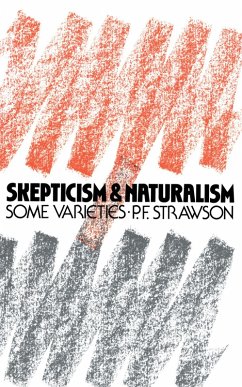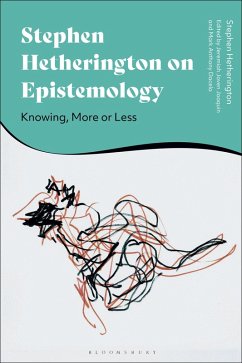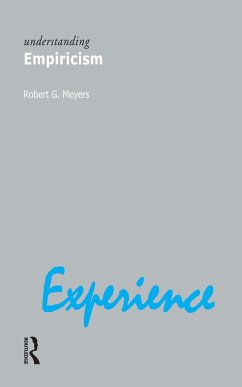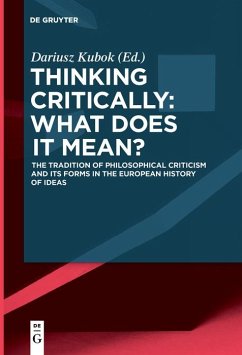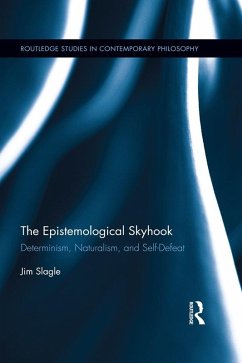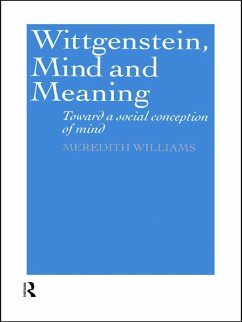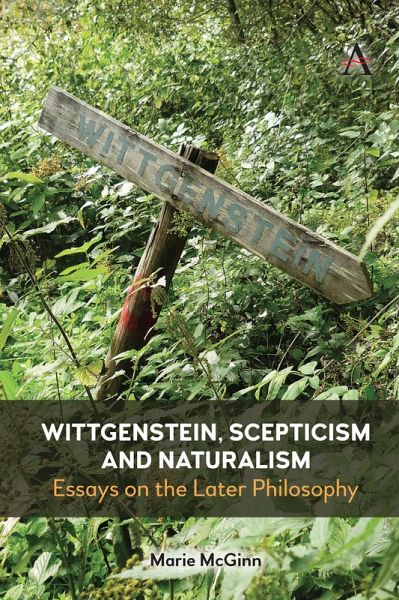
Wittgenstein, Scepticism and Naturalism (eBook, ePUB)
Essays on the Later Philosophy
Versandkostenfrei!
Sofort per Download lieferbar
30,95 €
inkl. MwSt.
Weitere Ausgaben:

PAYBACK Punkte
15 °P sammeln!
Central to any interpretation of Wittgenstein's later philosophy is an understanding of his philosophical method and the nature of the turn which characterises the evolution from his early to his later work. In the essays in Wittgenstein, Scepticism and Naturalism, Marie McGinn argues that the methodological shift has at its heart a highly distinctive form of naturalism.This form of naturalism has nothing to do with the kind of scientific naturalism that is associated with accounting for all phenomena in terms of the conceptual resources of the natural sciences. It is closer to the Aristotelia...
Central to any interpretation of Wittgenstein's later philosophy is an understanding of his philosophical method and the nature of the turn which characterises the evolution from his early to his later work. In the essays in Wittgenstein, Scepticism and Naturalism, Marie McGinn argues that the methodological shift has at its heart a highly distinctive form of naturalism.
This form of naturalism has nothing to do with the kind of scientific naturalism that is associated with accounting for all phenomena in terms of the conceptual resources of the natural sciences. It is closer to the Aristotelian naturalism defended by John McDowell, although, in Wittgenstein's case, the principal influence is Goethe, whose conception of how to understand the phenomena of nature is self-consciously opposed to the reductive approach of scientific naturalism. Goethe places the emphasis on achieving a clarified view of complex, natural phenomena in their natural setting, with a view to describing patterns and connections that are in plain view. The novelty of Wittgenstein's later work is that it applies these methods to the task of conceptual clarification, which aims at dissolving philosophical problems and paradoxes.
The essays in Wittgenstein, Scepticism and Naturalism cover the following topics: scepticism about the external world; scepticism about other minds; knowledge and belief; meaning and rule-following; psychological states and the distinctive first-person use of psychological concepts; the relation between the early and the later philosophy; and the nature of Wittgenstein's naturalism.
This form of naturalism has nothing to do with the kind of scientific naturalism that is associated with accounting for all phenomena in terms of the conceptual resources of the natural sciences. It is closer to the Aristotelian naturalism defended by John McDowell, although, in Wittgenstein's case, the principal influence is Goethe, whose conception of how to understand the phenomena of nature is self-consciously opposed to the reductive approach of scientific naturalism. Goethe places the emphasis on achieving a clarified view of complex, natural phenomena in their natural setting, with a view to describing patterns and connections that are in plain view. The novelty of Wittgenstein's later work is that it applies these methods to the task of conceptual clarification, which aims at dissolving philosophical problems and paradoxes.
The essays in Wittgenstein, Scepticism and Naturalism cover the following topics: scepticism about the external world; scepticism about other minds; knowledge and belief; meaning and rule-following; psychological states and the distinctive first-person use of psychological concepts; the relation between the early and the later philosophy; and the nature of Wittgenstein's naturalism.
Dieser Download kann aus rechtlichen Gründen nur mit Rechnungsadresse in A, D ausgeliefert werden.




